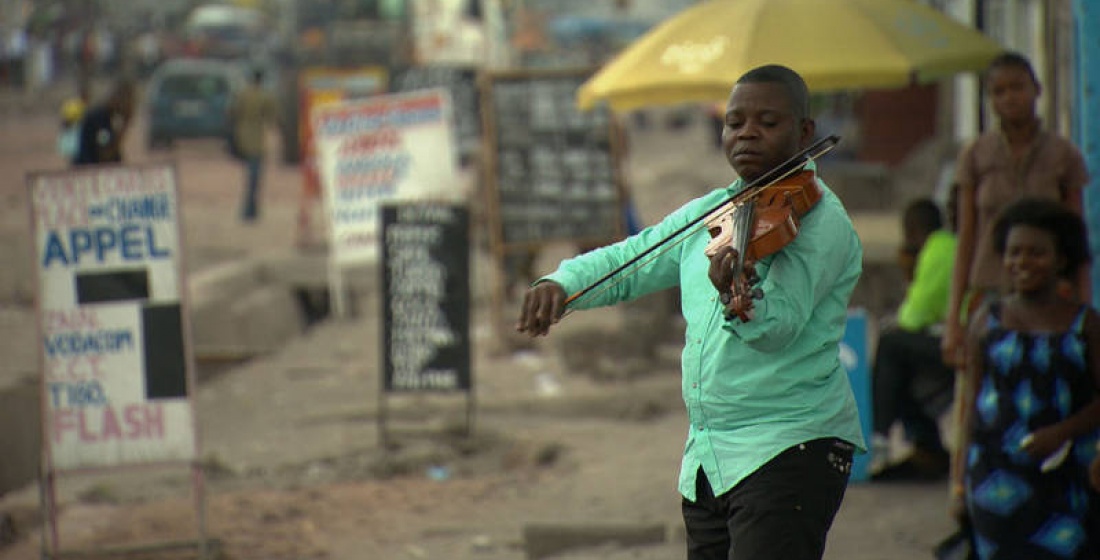
Kinshasa Symphony
Claus Wischmann, Martin Baer, 95 min, Germany.Kinshasa, the capital of the Democratic Republic of the Congo and the third-largest city in Africa. Almost ten million people live here and they number among the poorest inhabitants on this planet. Kinshasa is the home of Central Africa’s one and only symphony orchestra
Two hundred orchestral musicians are playing Beethoven’s Ninth – Freude schöner Götterfunken. A power cut strikes just a few bars before the last movement. Problems like this are the least of the worries facing the only symphony orchestra in the Congo. In the 15 years of its existence, the musicians have survived two putsches, various crises and a war. But concentration on the music and hopes for a better future keep them going. Kinshasa Symphony is a study of people in one of the world’s most chaotic cities doing their best to maintain one of the most complex systems of joint human endeavour: a symphony orchestra. The film is about the Congo, the people in Kinshasa and the power of music.
One of the musicians is Albert Matubanza. He is a guitarist, he cannot play the violin or the cello. But he has coached many of the string players, helping them to master their instruments and understand the music. At present he is making a new double bass for the orchestra. In the meantime, other craftsmen in the band have assembled a collection of frequently self-invented and self-made tools enabling them to repair anything that goes wrong with the instruments. Both the men and the women make their own suits and dresses to wear at public performances, they procure the sheet music required and make sure the children are supervised during the long evening rehearsals.
Most members of the orchestra are self-taught amateurs. Even for those fortunate enough to have vocational qualifications and a more or less regular job, everyday life in this megacity (population 8 million) is a battle for survival. For many the working day begins at 6 a.m., earlier still for those who cannot afford public transport and have to walk miles to get to work. But the rehearsals go on until well into the night – and there are rehearsals almost every day.